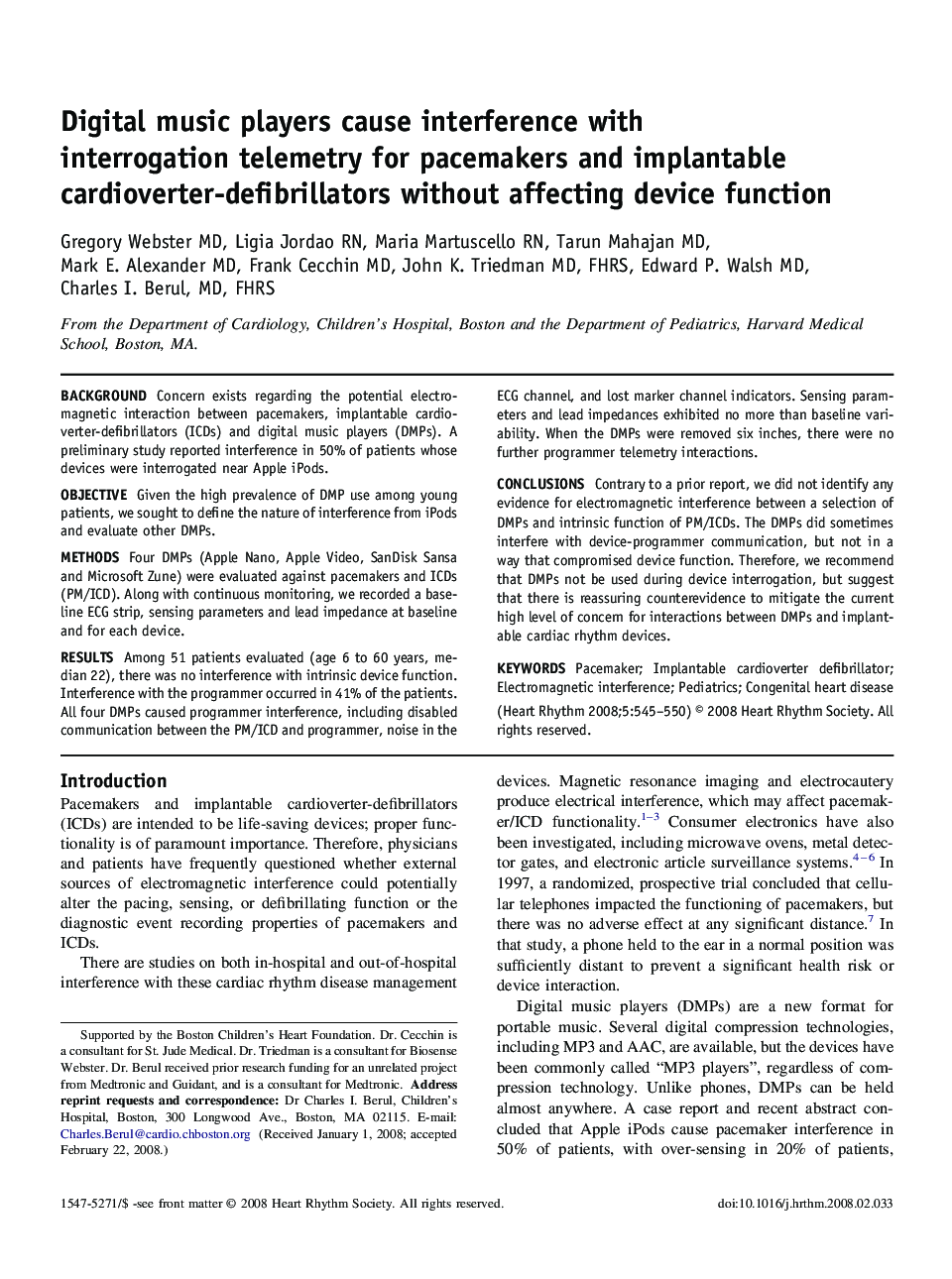| Article ID | Journal | Published Year | Pages | File Type |
|---|---|---|---|---|
| 2924094 | Heart Rhythm | 2008 | 6 Pages |
BackgroundConcern exists regarding the potential electromagnetic interaction between pacemakers, implantable cardioverter-defibrillators (ICDs) and digital music players (DMPs). A preliminary study reported interference in 50% of patients whose devices were interrogated near Apple iPods.ObjectiveGiven the high prevalence of DMP use among young patients, we sought to define the nature of interference from iPods and evaluate other DMPs.MethodsFour DMPs (Apple Nano, Apple Video, SanDisk Sansa and Microsoft Zune) were evaluated against pacemakers and ICDs (PM/ICD). Along with continuous monitoring, we recorded a baseline ECG strip, sensing parameters and lead impedance at baseline and for each device.ResultsAmong 51 patients evaluated (age 6 to 60 years, median 22), there was no interference with intrinsic device function. Interference with the programmer occurred in 41% of the patients. All four DMPs caused programmer interference, including disabled communication between the PM/ICD and programmer, noise in the ECG channel, and lost marker channel indicators. Sensing parameters and lead impedances exhibited no more than baseline variability. When the DMPs were removed six inches, there were no further programmer telemetry interactions.ConclusionsContrary to a prior report, we did not identify any evidence for electromagnetic interference between a selection of DMPs and intrinsic function of PM/ICDs. The DMPs did sometimes interfere with device-programmer communication, but not in a way that compromised device function. Therefore, we recommend that DMPs not be used during device interrogation, but suggest that there is reassuring counterevidence to mitigate the current high level of concern for interactions between DMPs and implantable cardiac rhythm devices.
